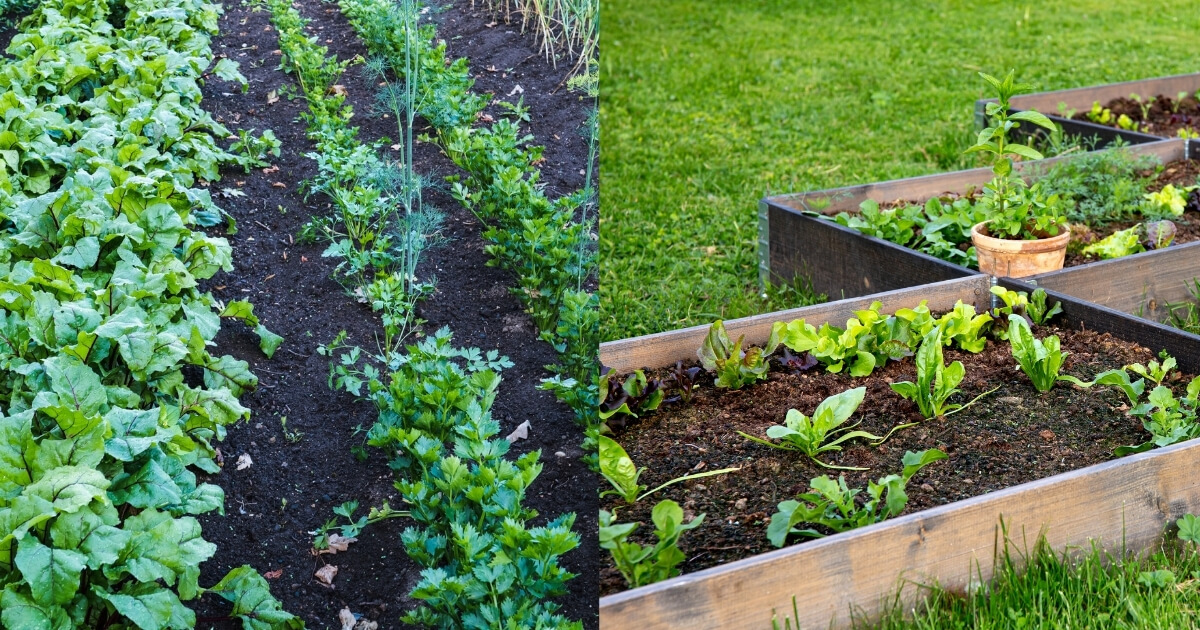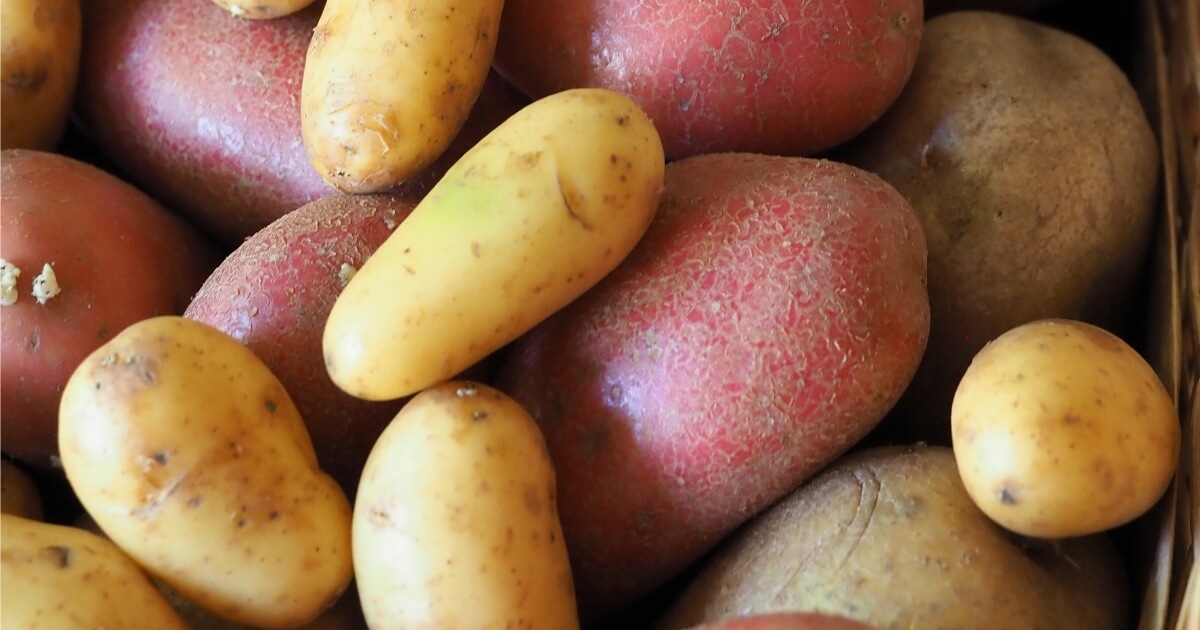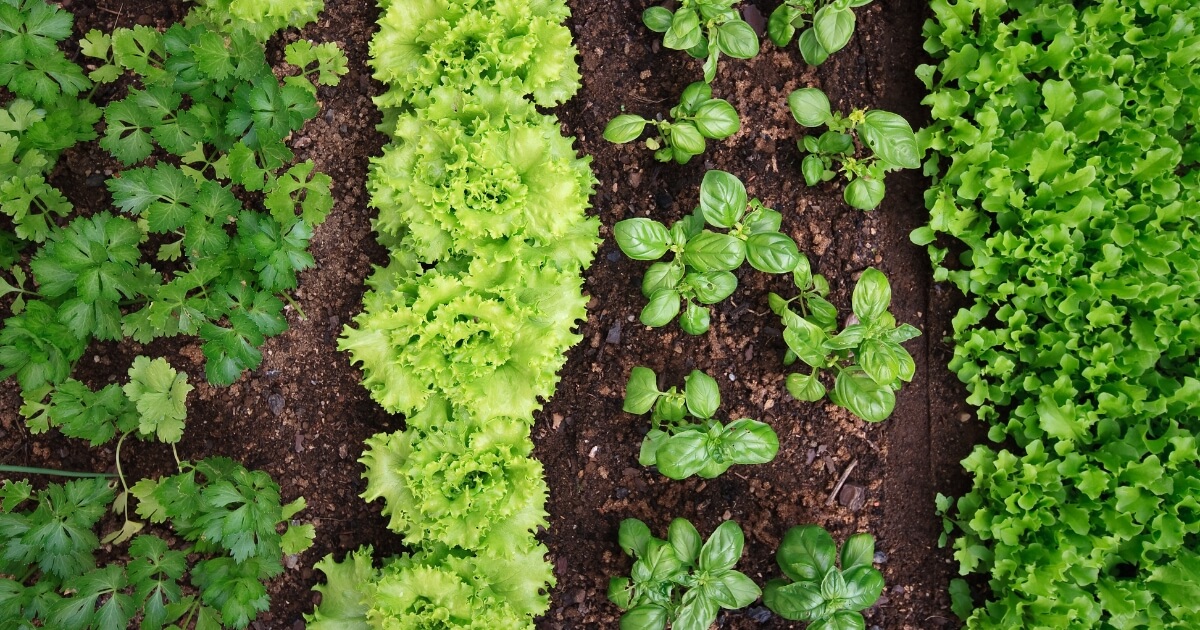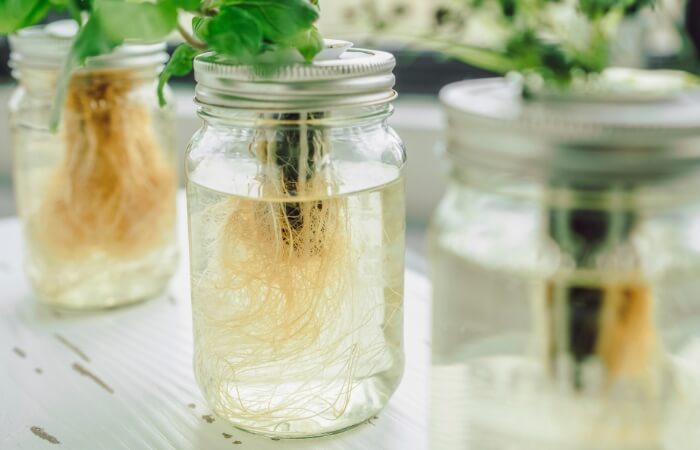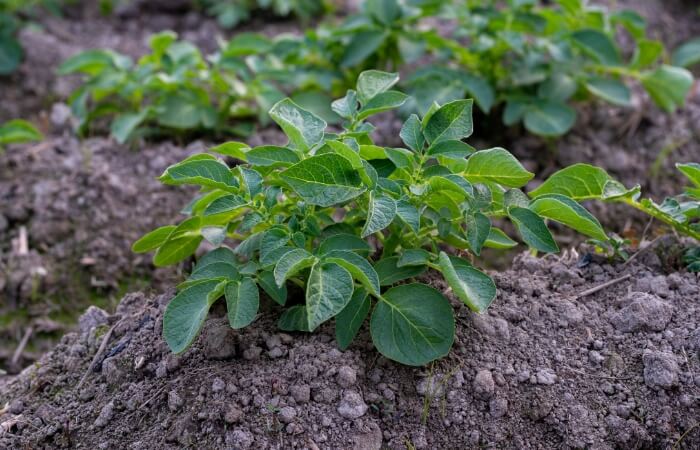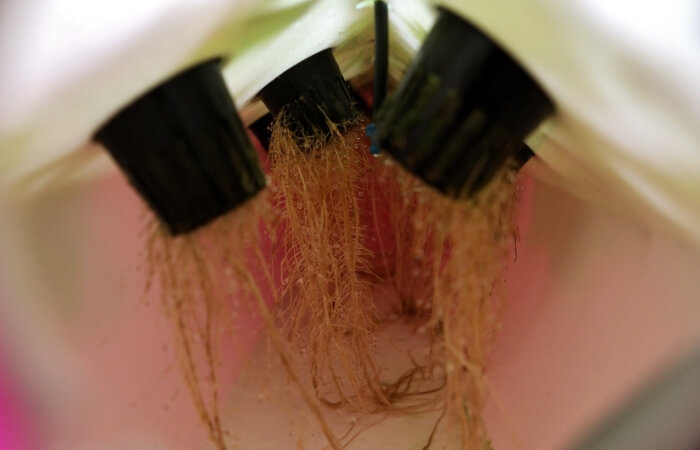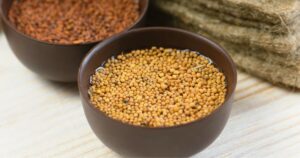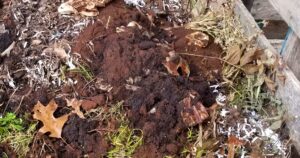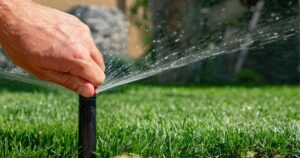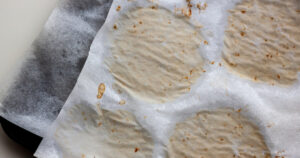There is no need to fear a yard full of pine trees, as piles of needles will not alter your solid pH levels and make them more acidic.
The truth behind the popular garden myth of pine needles turning soil acidic can be shocking, but the more you know about soil pH levels, and what can change them, the better you can tailor your gardening plans.
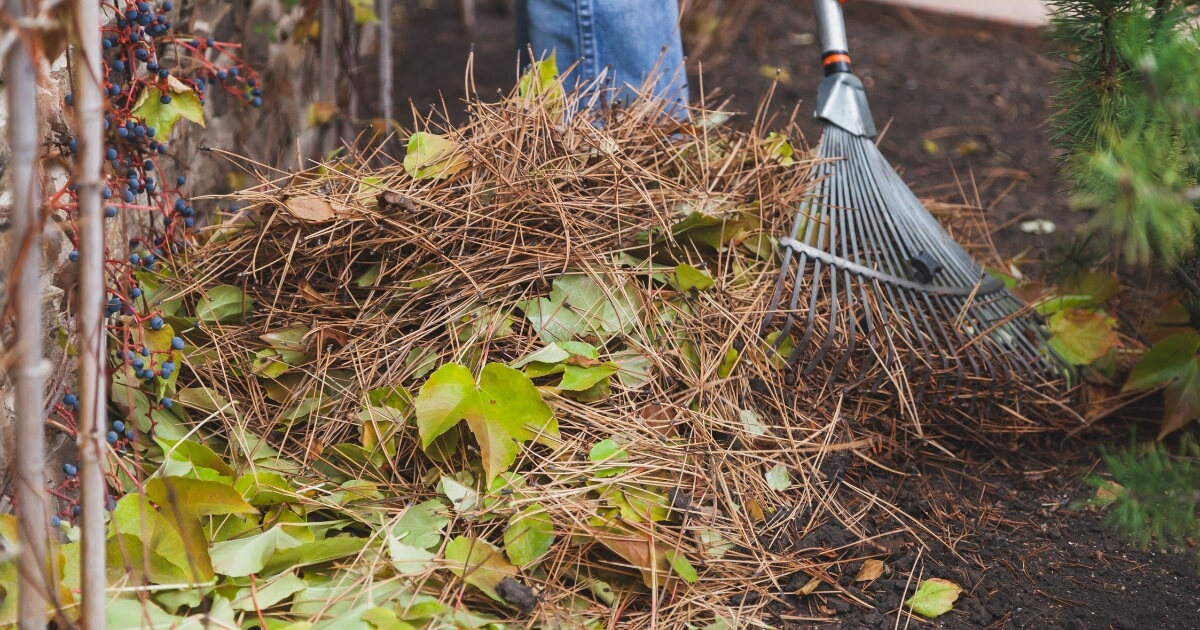
Pine needles are abundant and free, so don’t be afraid to use them to add nutrients to you your compost pile and as mulch in your landscaping beds because they won’t alter your soil’s pH!
Do Pine Needles Acidify Soil?
Fresh, green pine needles are slightly acidic and have led to the gardening myth that pine needles will acidify the soil.
The reality is that it’s rare for green pine needles to fall from trees, and therefore they have little impact on a soil’s acidity levels.
A thick layer of pine needles will alter soil pH levels as they break down, but typically it won’t be nearly enough to cause problems in your garden.
Once pine needles drop from the tree, the acidity level is even lower, so there should be no worry they will negatively impact the soil, no matter how thick a layer builds up.
Pine straw, which is the needles once they turn completely brown, is just barely in the acid pH range and will skew neutral as time passes.
Is The Soil Underneath Pine Trees More Acidic?
Studies of soil samples taken from underneath decades-old pine trees left undisturbed in the wild show no discernible difference in acidity from that of nearby soil free of pine needles.
Fresh pine needles may not alter soil pH to be more acidic because they need other elements, such as aluminum sulfate or sulfur, to be present to modify the overall pH.
If you have soil that needs more acidity, you can achieve a lower pH level by tilling in fresh pine needles but don’t expect a drastic change.
For a fundamental change in attaining a lower soil pH, you’ll need to apply a concentrated garden soil acidifier to get the job done quickly.
pH Of Pine Needles
Let’s go over the different pH levels found in pine needles growing on the tree to dry and brown after falling to the ground.
- Fresh Pine Needle Acidity – If you crush and soak fresh and healthy pine needles in distilled water for a day, they will show a pH level between 3.2 to 3.8.
- Wilting Pine Needle Acidity – As pine needles start to wither on the branch, the pH is already rising. During this stage, the acidic level is in the range of 4.0 to 5.0.
- Acidity Of Pine Straw – Once pine needles fall from the tree, they quickly become brown and lose all moisture, turning them into lightweight pine straw. The pH level of pine straw is 6.0 to 6.5.
With a pH level of 7 being neutral, and the fact that most plants prefer to grow in slightly acidic soil, you can see how the acidity level of pine needles causes little concern for gardeners.
Does Rain Or Water Affect Pine Needle Acidity?
No, rain or water won’t directly affect the acidity of pine needles enough to make any difference.
Water does affect soil acidity in other ways. The first is by washing acids in the dirt away during heavy rainfalls, which could push the pH closer to neutral.
The second fact that many people overlook is that normal rain will have a pH level of about 5.0 to 5.5, which is pretty acid in and of itself.
Another factor is that moisture helps break down organic matter, including pine needles, present in the soil.
Acidity levels increase during the decomposition process and return to a more neutral level as the material completely breaks down to become nutrients for plants or soil microbes.
The conclusion about whether rainwater changes the pH of pine needles is that water can leach out residual acids, but it will take a long time. Other factors play a larger role in overall soil acidity.
